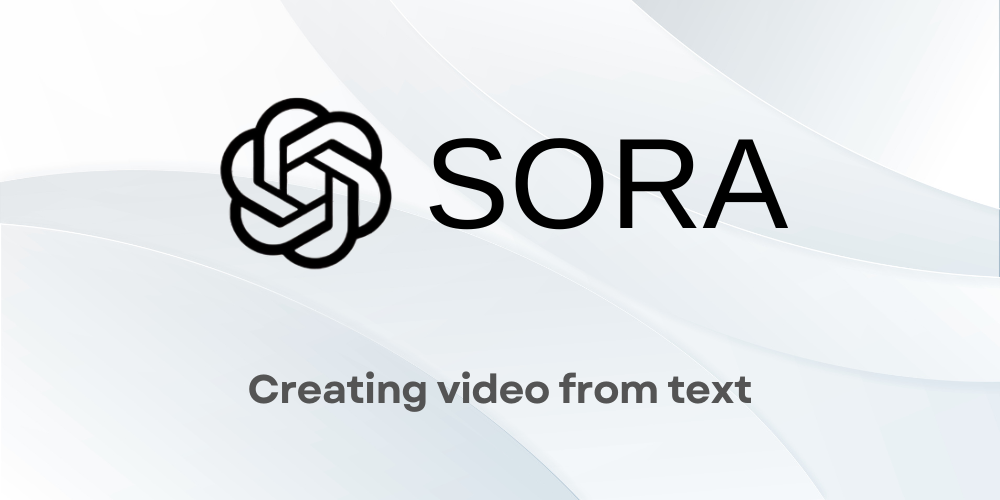
Executives at the startup notified talent agencies and studios over the last week By Keach Hagey, Berber Jin and Ben Fritz

OpenAI is planning to release a new version of its Sora video generator that creates videos featuring copyright material unless copyright holders opt out of having their work appear, according to people familiar with the matter.
OpenAI began alerting talent agencies and studios about the forthcoming product and its opt-out process over the past week and plans to release the new version in the coming days, the people said.
The opt-out process for the new version of Sora means that movie studios and other intellectual property owners would have to explicitly ask OpenAI not to include their copyright material in videos the tool creates.
The policy is emblematic of AI companies’ aggressive stance on the content that underpins and is created by their fast-growing tools as they race to attract new users. It is part of a broader shift that new AI tools have heralded in the control that copyright owners wield over their work in the U.S.
While copyright characters will require an opt-out, the new product won’t generate images of recognizable public figures without their permission, people familiar with OpenAI’s thinking said.
“Our general approach has been to treat likeness and copyright distinctly,” said Jason Kwon, chief strategy officer of OpenAI.
People familiar with its policies said any new video generator would have similar copyright guardrails to ChatGPT’s image generator tool, which was released in April. It promptly flooded the internet with memes in the style of the Japanese animation studio Studio Ghibli.
OpenAI has agreements with some studios to keep its tools from surfacing their copyright characters, upon their request, according to some of the people.
The Wall Street Journal’s parent company, News Corp, has a content deal with OpenAI.
OpenAI and its rivals are competing fiercely for users as they launch new AI-powered tools that could transform entertainment and social media. One of OpenAI’s most formidable competitors is Google, which recently connected its Veo 3 AI video generator to its popular YouTube platform, allowing users to incorporate the technology in short-form videos.
“Given the intense competition in the space, I think they think, ‘maybe we will ask for forgiveness instead of asking for permission,’” said Kristelia García, a communications, entertainment and media professor at Georgetown Law School.
OpenAI doesn’t plan to accept a blanket opt-out across all of an artist or studio’s work, the people familiar with the new Sora tool said. Instead, it sent some talent agencies a link to report violations that they or their clients discover.
“If there are folks that do not want to be part of this ecosystem, we can work with them,” Varun Shetty, VP of media partnerships at OpenAI, said of guardrails the company built into its image generation tool.
OpenAI released the initial version of Sora last December, allowing users to create high-definition video clips from text prompts.
“For so many in the AI space, this move validates longstanding fears and underscores why we need guardrails,” said Dan Neely, CEO of Vermillio, an AI licensing and protection platform.
The new version of Sora comes at a delicate political moment for OpenAI. The company is awaiting assurance from the attorneys general of California and Delaware that they won’t oppose its attempt to convert to a structure closer to a traditional for-profit company. OpenAI has told some investors that if the conversion isn’t completed by the end of the year, they can claw back some of their promised investment, The Wall Street Journal previously reported.
Hollywood’s relationship with many AI companies has been fraught. Creatives have pushed for AI companies to seek consent and offer compensation when their work is used to train models and when those tools spit out content based on creative works.
This spring, OpenAI and Google publicly lobbied the Trump administration to declare that using copyright material to train AI models was “fair use” under copyright law. The request prompted backlash from Hollywood talent, with more than 400 actors, directors, musicians and other creative professionals signing an open letter arguing that U.S. dominance in AI shouldn’t come at the expense of its creative industries.
Trump said this summer that while AI systems can’t copy or plagiarize an article, “if you read an article and learn from it, we have to allow AI to use that pool of knowledge without going through the complexity of contract negotiations.”
This summer, judges sided with Meta Platforms and Anthropic in parts of two separate cases, finding that using copyright material to train AI models was fair use when the material was transformed into something meaningfully different.
Disney and Comcast’s Universal sued AI company Midjourney in June for allegedly stealing their copyright work to train its AI image generator. Midjourney has responded in court filings that training on copyrighted content is fair use.
Write to Keach Hagey at Keach.Hagey@wsj.com, Berber Jin at berber.jin@wsj.com and Ben Fritz at ben.fritz@wsj.com